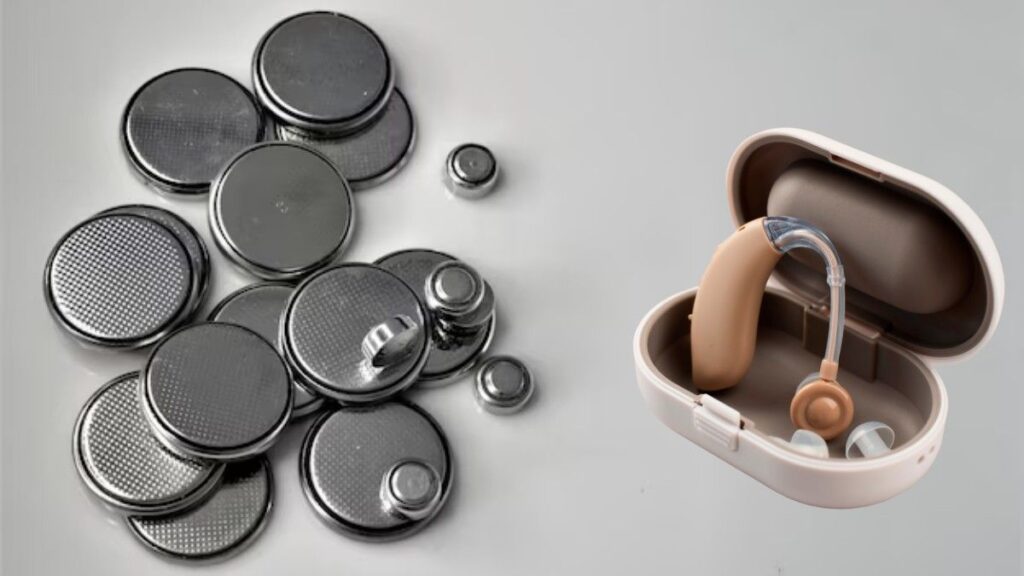
How Often Should You Replace Hearing Aid Batteries? A Complete Guide
Hearing aids help millions of people stay connected to conversations, sounds, and the world around them. To work properly, these devices depend on a small but powerful part—batteries. If you’ve ever asked, “How often should you replace hearing aid batteries?” this blog is for you. Understanding battery life and knowing when to change it can make your hearing aid work better and last longer.
There are different types and sizes of batteries used in hearing aids, and each has its lifespan. Factors like daily use, the type of hearing aid, and the environment also affect battery life. In this blog, we’ll explain how often you need to replace your batteries, signs that they’re running low, and simple ways to make them last longer.
Understanding Hearing Aid Batteries
Hearing aid batteries come in two main types:
- Disposable batteries (zinc-air): Most common and used in many hearing aids. They are activated by air and last for a few days, depending on the size.
- Rechargeable batteries (lithium-ion): These are built into the hearing aid and can be charged daily. They are more eco-friendly and convenient.
Each battery size has a number code and colour for easy identification. If you are unsure about what size you need, check your hearing aid manual or visit our page on Which Cell is Used in Hearing Aids.
How Long Do Hearing Aid Batteries Last?
Here is the average lifespan of disposable batteries:
- Size 10 (Yellow tab): 3 to 5 days
- Size 312 (Brown tab): 5 to 7 days
- Size 13 (Orange tab): 7 to 10 days
- Size 675 (Blue tab): 9 to 14 days
Factors That Affect Battery Life:
Battery life isn’t always the same for every user, even with the same battery size. Several things can affect how long your hearing aid batteries last:
- Type of hearing aid: Devices with modern features like Bluetooth or wireless streaming tend to use more power. The more advanced the features, the more energy is needed, which can shorten battery life.
- Daily usage time: The number of hours you wear your hearing aid each day plays a big role. If you use your device for 12–16 hours a day, the battery will run out faster than if it’s used for just a few hours.
- Environment: Temperature and humidity affect battery performance. Cold weather can slow down battery activity, while too much moisture can damage the battery and reduce its life.
- Volume levels: If you usually keep your hearing aid on higher volume settings, it will drain the battery faster. Louder sound processing takes more energy to maintain.
- Battery age: Even if you haven’t used a battery, it can lose power over time. Old batteries, especially those stored improperly, may have a shorter life even when new.
Knowing these factors can help you manage your battery use more efficiently and avoid unexpected power loss.
Signs It’s Time to Replace Your Battery
Here are the common signs your battery may be running low:
- Weak or distorted sound
- The hearing aid turns off without warning.
- Frequent need to readjust the volume
- Low battery warning tones from the device
- The hearing aid does not turn on at all.
If you notice any of these, replace the battery right away to avoid missing important sounds.
How to Replace Hearing Aid Batteries Safely
Changing your battery the right way ensures the best performance. Follow these steps:
- Wash and dry your hands before handling the battery
- Remove the old battery and throw it away properly
- Take a new battery and remove the sticker/tab
- Wait 1 minute before inserting it to let air activate it
- Place the battery with the + side facing upward.
- Close the battery door gently
The best time to change your battery is at the start of the day when you are alert and can test it easily.
Tips to Extend Battery Life
You can make your batteries last longer with a few simple habits:
- Open the battery door at night to let air circulate and stop the drain
- Store batteries at room temperature—avoid heat or cold
- Keep batteries in a dry place, not the refrigerator
- Do not mix new and old batteries
- Always check the expiration date on the package before use.
- Use a battery tester to avoid inserting weak batteries
If you’re using rechargeable hearing aids, charge them fully every night for the best results.
Rechargeable vs. Disposable Batteries: What to Choose?
Here’s a simple comparison to help you decide:
Feature | Rechargeable Batteries | Disposable Batteries |
Cost Over Time | Lower | Higher |
Maintenance | Easier | Needs regular change |
Environmental | Eco-friendly | Less sustainable |
Usage Duration | 24–30 hrs per charge | 3–14 days |
Charging Required | Yes, daily | No |
If you’re unsure what’s best for you, visit a Hearing Care clinic in Delhi for guidance based on your hearing needs and daily routine.
Where to Get New Batteries or Battery Checkups
Hearing aid batteries are available in:
- Local medical stores and pharmacies
- Hearing care centres and clinics
- Online shops and hearing aid brand websites
We recommend checking with a nearby Hearing aid shop in Delhi for the best quality and service. They can also help you with battery installation, recycling, or hearing aid tuning. If your battery seems too quickly running out, a clinic can test your device for issues.
Conclusion
To answer the question, how often should you replace hearing aid batteries?—it depends on the battery size and how often you use your hearing aid. On average, expect to change batteries every 3 to 10 days for disposable types. Rechargeable batteries last all day and only need daily charging.
Knowing the signs of low battery, using the right replacement method, and following care tips can save you time, money, and stress. And when in doubt, you can always stop by your nearest Hearing Care clinic in Delhi for a quick checkup or replacement.
Frequently Asked Questions
You can find the battery size printed inside the battery door of your hearing aid or in the user manual. Each size also comes with a colour-coded tab to make it easier to identify.
No, only specific hearing aid models support rechargeable batteries. You need a compatible device that has a built-in charging system.
Yes, there is a noticeable difference between the two. Branded batteries are more reliable, last longer, and are designed specifically for hearing aids. They are also tested for safety and performance. On the other hand, local or unbranded batteries may be cheaper, but they often drain faster and can sometimes leak or damage the hearing aid if not made properly.
You can follow a few simple steps to extend battery life. Always open the battery door when the hearing aid is not in use to reduce unnecessary power drain. Store unused batteries in a cool, dry place and avoid exposure to heat or moisture. Also, keep your hearing aids clean and dry, as dirt or moisture can cause the device to work harder and use more power.
You can purchase hearing aid batteries from most local pharmacies or medical supply stores. Hearing care clinics and hearing aid centres also stock a variety of battery types and sizes. For more convenience, many users also buy batteries online from trusted sellers. These options usually offer packs in bulk with reliable delivery and support if needed.
Dr. Harshi, is an accomplished Audiologist with extensive expertise in treating individuals with hearing impairments.

